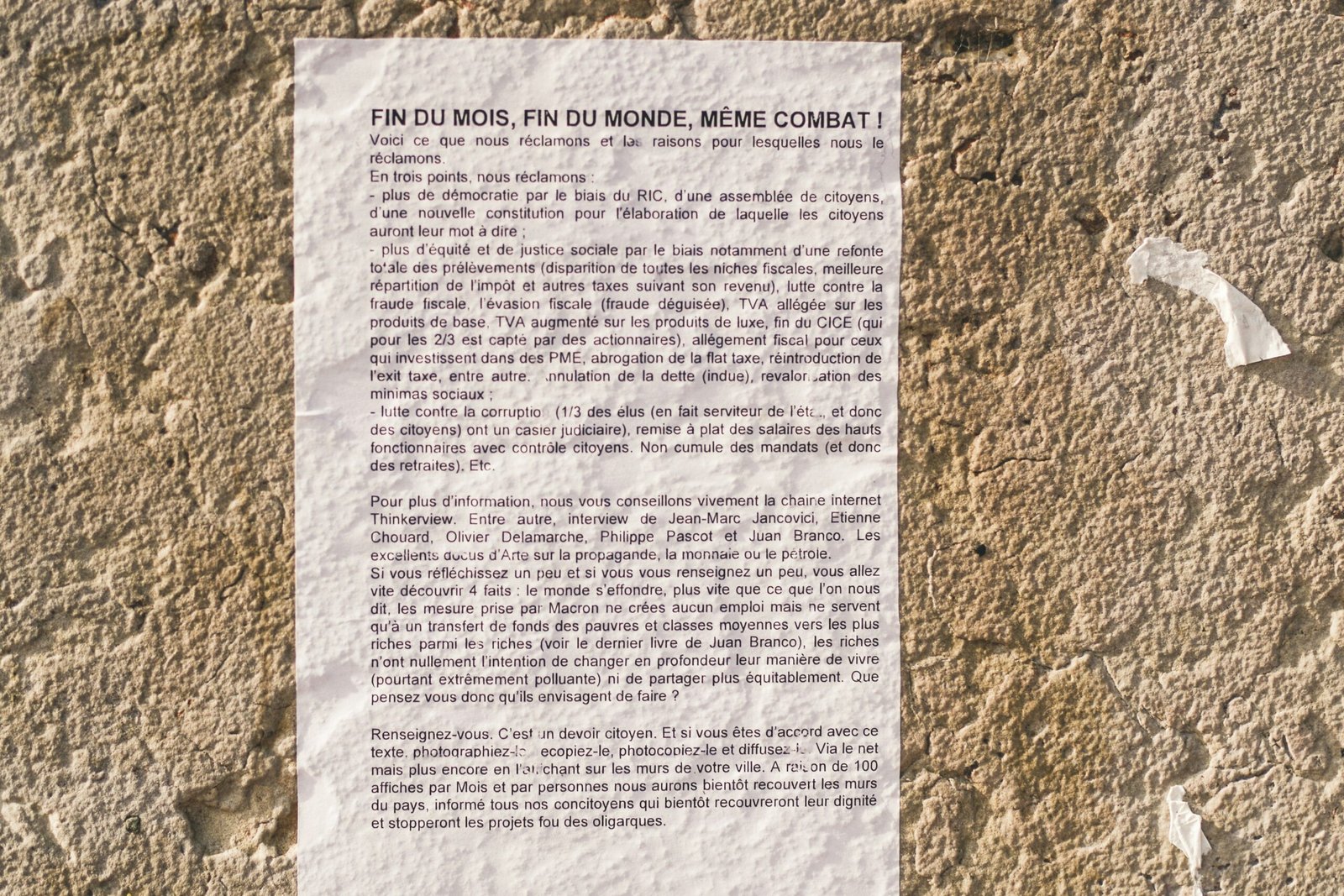
Introduction to Marine Le Pen and the National Rally
Marine Le Pen, born on August 5, 1968, in Neuilly-sur-Seine, France, is a prominent figure in French politics, best known for her leadership of the National Rally party. She is the daughter of Jean-Marie Le Pen, the founder of the National Front, a party historically known for its far-right stance and controversial positions on immigration and nationalism. Marine Le Pen’s political journey began early, influenced by her father’s ideologies. She officially joined the National Front in 1986 and quickly rose through the ranks, showcasing her political acumen and determination.
Marine Le Pen took over the leadership of the National Front in 2011, succeeding her father amid internal strife and external criticism. One of her most notable achievements since assuming leadership has been the rebranding of the party. In 2018, she renamed the party to the National Rally, a strategic move aimed at shedding the party’s extremist image and broadening its appeal to a wider electorate. This rebranding was not merely cosmetic but also an indication of the significant ideological shifts she has implemented within the party.
The National Rally, under Marine Le Pen’s leadership, has maintained a strong stance on issues such as immigration, national sovereignty, and law and order, positioning itself as a defender of French identity and values. The party advocates for stricter immigration controls, a stance that has resonated with a segment of the French populace concerned about cultural integration and economic stability. Furthermore, the National Rally has called for France to regain control over its laws and borders, often criticizing the European Union’s influence over French sovereignty.
Within the broader context of French and European politics, the National Rally has emerged as a formidable force. Marine Le Pen’s leadership has seen the party gain significant traction in various elections, including the French legislative elections, where it has increased its representation. Her ability to articulate the concerns of a disenfranchised electorate and position the National Rally as a credible alternative to the traditional parties has fundamentally altered the political landscape in France.
Electoral Success and the First Round of the 2024 French Legislative Elections
The first round of the 2024 French legislative elections, held on June 6, marked a significant shift in the country’s political landscape. The National Rally, led by Marine Le Pen, emerged as a dominant force, securing an impressive 34 percent of the vote. This outcome not only outpaced the left alliance, which garnered 28 percent, but also surpassed President Macron’s Ennahda party, which managed to capture just 20 percent of the electorate’s favor.
Several factors have contributed to the National Rally’s remarkable performance in these elections. Chief among them is the growing discontent with the traditional political establishment, which many voters believe has failed to address key issues such as immigration, economic inequality, and national security. The National Rally has capitalized on these concerns by advocating for stricter immigration controls, economic protectionism, and a robust law-and-order agenda, resonating strongly with a significant portion of the French populace.
Voter demographics also played a crucial role in the National Rally’s success. The party has notably expanded its appeal beyond its traditional base of rural and working-class voters. Increasingly, it has attracted support from younger voters and segments of the middle class, who are disillusioned with the status quo and are seeking alternatives to the mainstream political parties. This broadening of support underscores the party’s evolving strategy to present itself as a viable and inclusive national alternative.
The political climate leading up to the elections was characterized by heightened polarization and a deepening mistrust in established institutions. This environment provided fertile ground for the National Rally’s populist rhetoric, which emphasized national sovereignty and cultural identity. The party’s messaging, coupled with effective grassroots mobilization, proved instrumental in its electoral gains.
The implications of these results for the upcoming second round of elections are profound. With the National Rally in a strong position, the dynamics of French politics are poised for significant change. The party’s potential to influence legislative agendas and shape policy debates will be closely watched, as will the responses of other political actors seeking to counter its ascent.
Macron’s Response and the Dissolution of the National Assembly
President Emmanuel Macron’s reaction to the recent French legislative elections culminated in the unexpected dissolution of the National Assembly on June 9, 2024. This unprecedented move came in response to the significant gains made by Marine Le Pen’s National Rally, which disrupted the traditional political equilibrium. Macron’s decision marked a pivotal moment in French politics, underscoring the volatility and shifting allegiances within the electorate.
The events leading to the dissolution were layered and complex. Following the legislative elections, Macron’s party, La République En Marche (LREM), faced a substantial decline in parliamentary seats. The rise of the National Rally, coupled with growing public discontent over economic and social policies, created a fraught political environment. Macron’s strategic calculus involved leveraging the dissolution as a means to reassert control and potentially recalibrate the political landscape in his favor.
Legally, Macron’s decision was within the bounds of the French Constitution, though it was a rare and bold maneuver. The dissolution of the National Assembly necessitated new elections, thereby offering Macron a chance to regain political momentum. Politically, however, the decision was fraught with risks. It could be perceived as an acknowledgment of the waning influence of his administration, thus emboldening opposition parties and complicating governance.
Strategically, Macron sought to capitalize on the timing of the European Parliament elections, where LREM performed better than anticipated. By dissolving the National Assembly, he aimed to harness the relative success at the European level to bolster domestic support. This approach was designed to counterbalance the National Rally’s growing influence and to present Macron as a resilient leader capable of navigating political turbulence.
The broader implications of this decision for Macron’s political future and legacy are substantial. Should the new legislative elections fail to deliver a more favorable outcome for LREM, Macron risks further erosion of his authority. Conversely, a successful outcome could reinvigorate his presidency and reinforce his reformist agenda. In either scenario, the dissolution of the National Assembly will remain a defining moment in Macron’s tenure, reflecting both the challenges and strategic complexities inherent in contemporary French governance.
Marine Le Pen’s Vision and the Future of French Politics
Marine Le Pen’s vision for France, as articulated through the National Rally (RN), represents a significant departure from the policies of the mainstream political parties. Le Pen has frequently emphasized her readiness to exercise power, positioning her party as a viable alternative for French voters disillusioned with the status quo. Central to her vision is a strong stance on immigration; she advocates for stricter border controls, reductions in legal immigration, and the expulsion of illegal immigrants. This approach resonates with a segment of the electorate concerned about national identity and security.
Economic reform is another cornerstone of Le Pen’s platform. The National Rally proposes a protectionist economic model, emphasizing the need to support French businesses and workers. Among their policy measures are the renegotiation of trade agreements, the implementation of tariffs to protect local industries, and the promotion of ‘economic patriotism.’ These policies aim to revitalize the French economy by prioritizing domestic over global interests.
National security remains a critical issue for the RN. Le Pen has called for increased funding for law enforcement and the military, enhanced counter-terrorism measures, and a more robust legal framework to combat crime. Her proposals include reinstating compulsory national service and bolstering intelligence capabilities to preempt potential threats.
As the National Rally prepares for the second round of the French legislative elections, they face a mixture of challenges and opportunities. On one hand, they must overcome the stigma associated with their far-right positions and broaden their appeal to a wider electorate. On the other hand, the growing discontent with traditional parties presents an opportunity for the RN to capitalize on the desire for change. The rise of the National Rally has already had a profound impact on France’s political landscape, pushing other parties to address issues that were once considered fringe.
Moreover, the implications of the RN’s ascent extend beyond France, influencing European politics as a whole. A stronger National Rally could shift the balance of power within the European Union, particularly on issues of sovereignty and integration. As Marine Le Pen continues to shape her party’s vision, the future of French politics remains in a state of flux, with potential reverberations across the continent.
